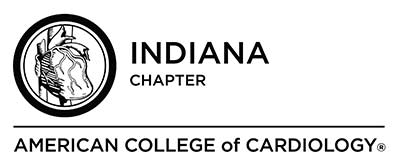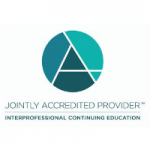Indiana-ACC 2020 Virtual Annual Meeting
Saturday, September 26, 2020
Session Recordings
Attendees: Visit the Indiana-ACC Virtual Meeting Platform
Rumble in the Jungle: Paleo vs Vegan Diets for CV Patients
Speakers: Danielle Belardo, MD and Ryan Daly, MD, FACC, FASE, FSCCT, FSCMR
Moderator: Vijay U. Rao, MD, PhD, FACC, FASE, FHFSA
The Great Debate: ISCHEMIA
Speakers: James Hermiller, MD, FACC, MSCAI and Subha V. Raman, MD, FACC
Moderator: Julie Clary, MD, MBA, FACC
Fellow in Training Oral Competition
Left Ventricular Assist Device Outflow Graft Thrombotic Stenosis Treated With Percutaneous Endovascular Stent
M. Hamid Bahrami, MD – IU
Reactivated Parvovirus Induced Fulminant Myocarditis Requiring Left Ventricular Assist Device
Kathleen Morris, DO
Poster Competition
Visit our ePoster Showcase
Winners
Oral Competition 1st place: M. Hamid Bahrami, MD (IU)
Oral Competition 2nd place: Kathleen Morris, DO
(St. Vincent Ascension)
1st year: Dr. Asad Torabi (IU)
2nd year: Dr. Vatsal Bajpai (IU)
3rd year: Dr. Sujoy Phookan (IU)
Resident: Dr. Nicholas Beaudrie (St. Vincent Ascension)
Cardiovascular Team: Patricia Gasper
(Beacon Advanced Cardiovascular Specialists)
CME/CNE
In support of improving patient care, this activity has been planned and implemented by the American College of Cardiology Foundation and the Indiana Chapter of the American College of Cardiology. The American College of Cardiology Foundation is jointly accredited by the Accreditation Council for Continuing Medical Education (ACCME), the Accreditation Council for Pharmacy Education (ACPE), and the American Nurses Credentialing Center (ANCC), to provide continuing education for the healthcare team.
Physicians
The ACCF designates this live educational activity for a maximum of 2.0 AMA PRA Category 1 Credit(s)™. Physicians should only claim credits commensurate with the extent of their participation in the activity.
MOC
Successful completion of this CME activity, which includes participation in the evaluation component, enables the participant to earn up to 2.0 Medical Knowledge MOC points in the American Board of Internal Medicine’s (ABIM) Maintenance of Certification (MOC) program. Participants will earn MOC points equivalent to the amount of CME credits claimed for the activity. It is the CME activity provider’s responsibility to submit participant completion information to ACCME for the purpose of granting ABIM MOC credit.
Nurses
The ACCF designates this live educational activity for a maximum of 2.0 continuing nursing education contact hours (0.75 pharmacotherapeutic nursing contact hours). Each attendee should only claim credits commensurate with the extent of their participation in the activity.
Pharmacists
ACCF designates this continuing education activity for 1.0 contact hours (0.1 CEUs) of the Accreditation Council for Pharmacy Education.
While offering credits noted above, the course is not intended to provide extensive training or certification in this field.
Statement of Need
While cardiovascular care is rapidly evolving due to new technologies and treatment options, healthcare providers need to be aware of the new heath care environment in which they practice as well as knowledge of the past advances and technologies which contributed to the current standards of optimal cardiovascular care. Healthcare providers need periodic educational updates on emerging clinical trials and advances in patient management to provide optimal care. Knowledge and competencies learned from case scenarios applicable to daily practice and changes to practice guidelines, will allow them to apply evidence-based research to their patient management decisions.
Overall Goal
The overall goal of this activity is to increase learner competence by discovering strategies to anticipate research-driven changes in practice, to enhance professional growth, and to demonstrate efficacy in patient care practice as new clinical approaches and technologies change.
Learner Objectives
- Discuss the benefits of a vegan diet and a paleo diet.
- Identify strategies to treat patients with SIHD.
Target Audience
Adult Cardiologists, Pediatric Cardiologists, Cardiothoracic Surgeons, Cardiology Fellows-in-Training, Nurses, Nurse Practitioners, Clinical Nurse Specialists, Physician Assistants, Pharmacists
Disclosure Policy
As a provider accredited by the Accreditation Council for Continuing Medical Education (ACCME) and the American Nurses Credentialing Center (ANCC), the American College of Cardiology Foundation (ACCF) must ensure balance, independence, objectivity and scientific rigor in all of their directly provided or jointly provided/co-provided educational activities. Planners, presenters, and other contributors, in a position to control the content are required to disclose to the audience all relevant financial relationships he/she and/or his/her spouse or domestic partner may have, occurring within the past 12 months, with any entity producing, marketing, re-selling, or distributing health care goods or services consumed by, or used on, patients. When an unlabeled use of a commercial product or an investigational use not yet approved for any purpose is discussed during an educational activity, the contributor should disclose that the product is not labeled for the use under discussion or that the product is still investigational.
ACCF is committed to providing its learners with high-quality activities and materials that promote improvements and quality in health care and not a specific proprietary business or commercial interest. The intent of this disclosure is not to prevent participation in educational activities by persons with a financial or other relationship, but rather to provide learners with information on which they can make their own determination whether financial interests or relationships may influence the education activity.
ACCF assesses conflicts of interest (COI) with its faculty, planners, managers, staff and other individuals who are in a position to control the content of CME/CNE activities. All relevant potential conflicts of interest that are identified are thoroughly vetted through a process that includes course directors and appropriate peer review by education committee chairs/members, for fair balance, scientific objectivity and validity, and patient care and safety recommendations.

